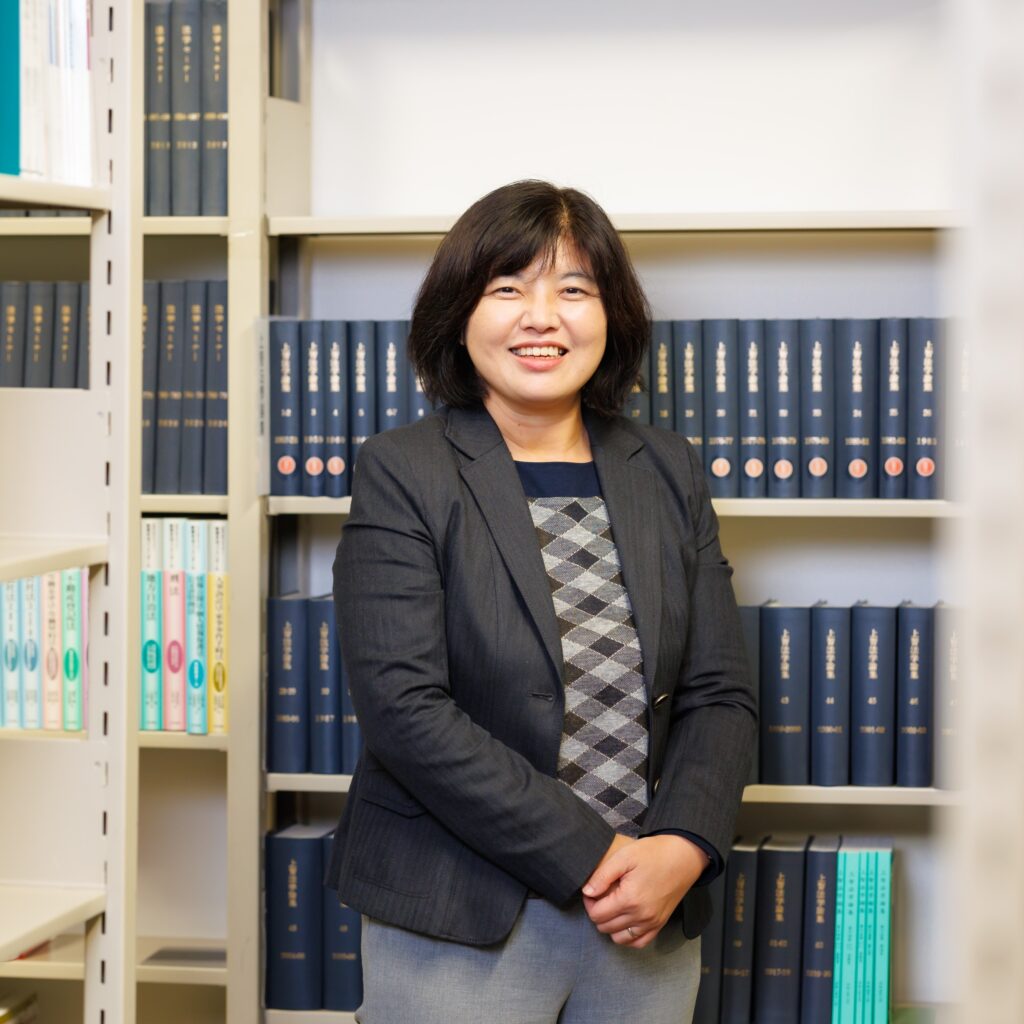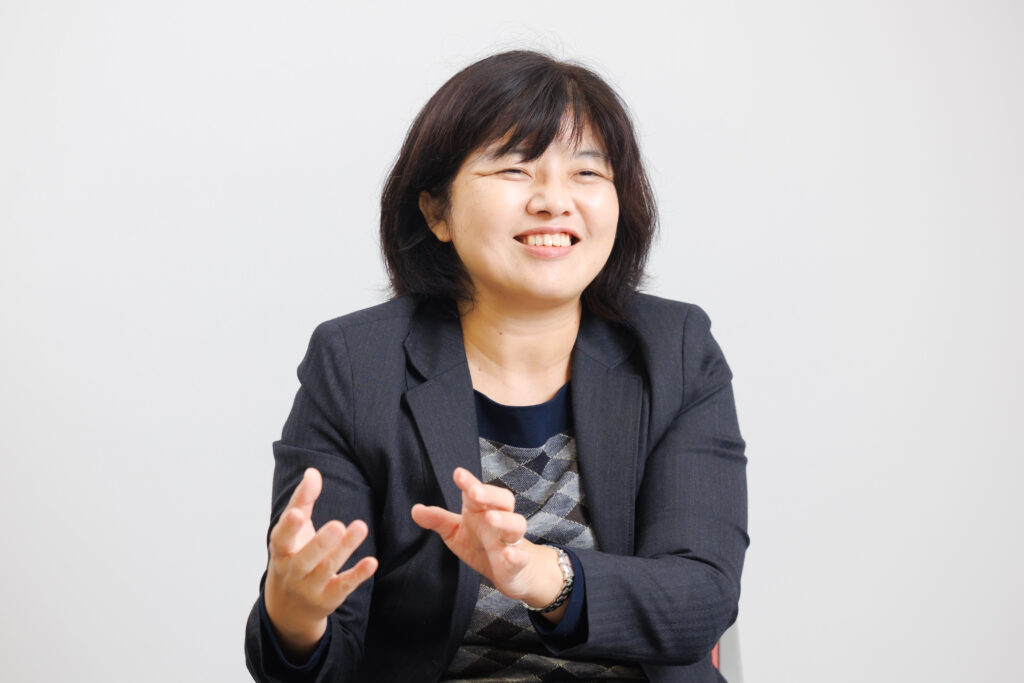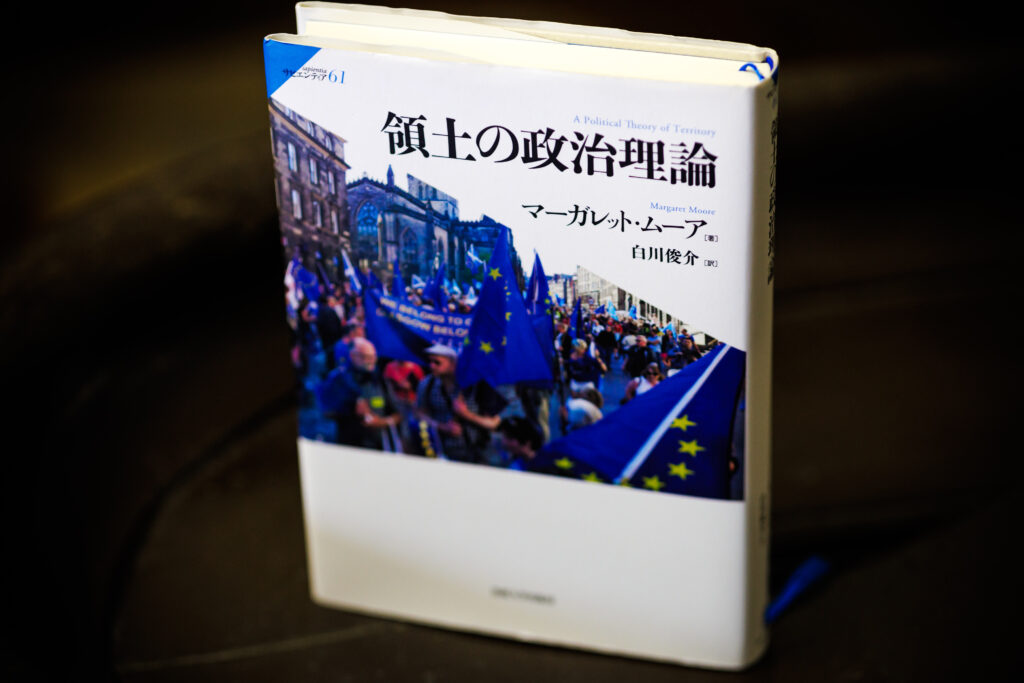
While people tend to see the assistance for migrants and refugees as a form of charity, one can say it is a diplomatic issue as it has the significant impact on the countries concerned, both economically and politically. Professor Midori Okabe from the Faculty of Law talks about the meaning of studying on the international movement of people.
My area of expertise is International Politics (or, International Relations as it is referred to in the American academic culture). This may conjure images of national leaders and ambassadors carrying out negotiations to peacefully build relations between nations. Or some may think of this as a field of study for solving issues in the areas of military affairs and the economy.
However, my research is slightly different, with the focus placed on the movement of people. It can also be described as a novel attempt at explaining the issue of migrants and refugees from the perspectives of national security and the economy.
Intentions of receiving and sending countries of migration

The European Union (EU) have done away with checking passports at national borders, even though the concept of a sovereign state remains. While allowing the free movement of people, the EU is also trying to tighten cooperation between the member states so that conflict among them does not break out again. People moving across national borders will bring peace—this is a conventional theory in international politics. Reckless wars become impossible if there is greater interdependence between nations.
However, the movement of people in modern times is not so simple. The issue of migrants and refugees, which continues to grow, is a typical example. Within developed countries, voices such as “my job was taken by a migrant” and “the streets have become unsafe” are growing louder. The existing political parties are at risk of being deposed, and there are populist parties that emerge with manifestos to ostracize foreigners.
At the same time, many developed countries have low birth rates with an increase in ageing population, facing labor shortages.
Developing countries where people emigrate from also have their own intentions. For example, there are countries where the GDP is supported through money remitted home by migrant workers. The Philippines is a typical case, but so are China and India. China, of course, is a country that has achieved so much economic growth. However, the country’s success has been partially supported by Chinese people who have migrated all over the world.
Also, many migrants in the world are sent to developed countries as refugees. Even if they do not fall under the definition of refugees under international law, they are unable to live in their own countries due to poverty, internal conflict, and environmental pollution. While it is important to extend aid to people facing tough conditions, the receiving countries will also face problems if these people turn up in large numbers.
There are also countries that exploit this and use it as political intimidation, something along the line of “If you don’t accede to my request, I will send a flood of refugees your way. You will take them in, right?” In other words, refugees are being used as pawns in national security policies.
Since 9/11, refugees have become a threat to national security globally
Refugees became a threat to national security after the coordinated terrorist attacks that took place in the US in 2001. The attacks of 9/11 showed that poor countries, and even groups that are not nations, can deliver enormous damage to major powers if they use any means possible.
Subsequently, terrorist attacks occurred frequently around the world. Even people in countries used to migrants become uncomfortable, worrying over whether their foreign neighbor is a good or bad person.
As an island nation, Japan could be a bystander in regard to the refugee problem, but this may not be possible going forward. Besides humanitarian aid, the Japanese government must demonstrate leadership worldwide to initiate discussions on the ideal policy for refugee protection other than one of accepting refugees. The sharing of accepting refugees in the world is not the essential solution when it only works as a temporary remedy. The Japanese government must suggest a plan for how to avoid people becoming refugees in the first place. A plan for ultimate and absolute peace. And here, I think, my role exists as an academic.
The book I recommend
“A Political Theory of Territory”
by Margaret Moore, Japanese translation by Shunsuke Shirakawa, Hosei University Press

The author, a political philosopher, discusses the concept of territory from a unique perspective. According to the author, the idea of territory intrinsically does not exist. If so, then we could migrate to wherever we like. Why does this not take place in the real world? This is a book that stimulates us in such a sophisticated way.
-
Midori Okabe
- Professor
Department of International Legal Studies
Faculty of Law
- Professor
-
Received her Ph.D. after completing the doctoral program at the Department of Advanced Social and International Studies, Graduate School of Arts and Sciences, The University of Tokyo. Took on several positions—such as an Academic Programme Associate of the Peace and Governance Programme at the United Nations University—before assuming her current position. During this period, other appointments include Visiting Academic at the Centre on Migration, Policy and Society, University of Oxford.
- Department of International Legal Studies
Interviewed: October 2022